Five Questions With PWHL Draft Prospect Kimberly Newell
Pro hockey has taken goaltender Kimberly Newell all over the globe. Now, she's ready for it to bring her home to BC.
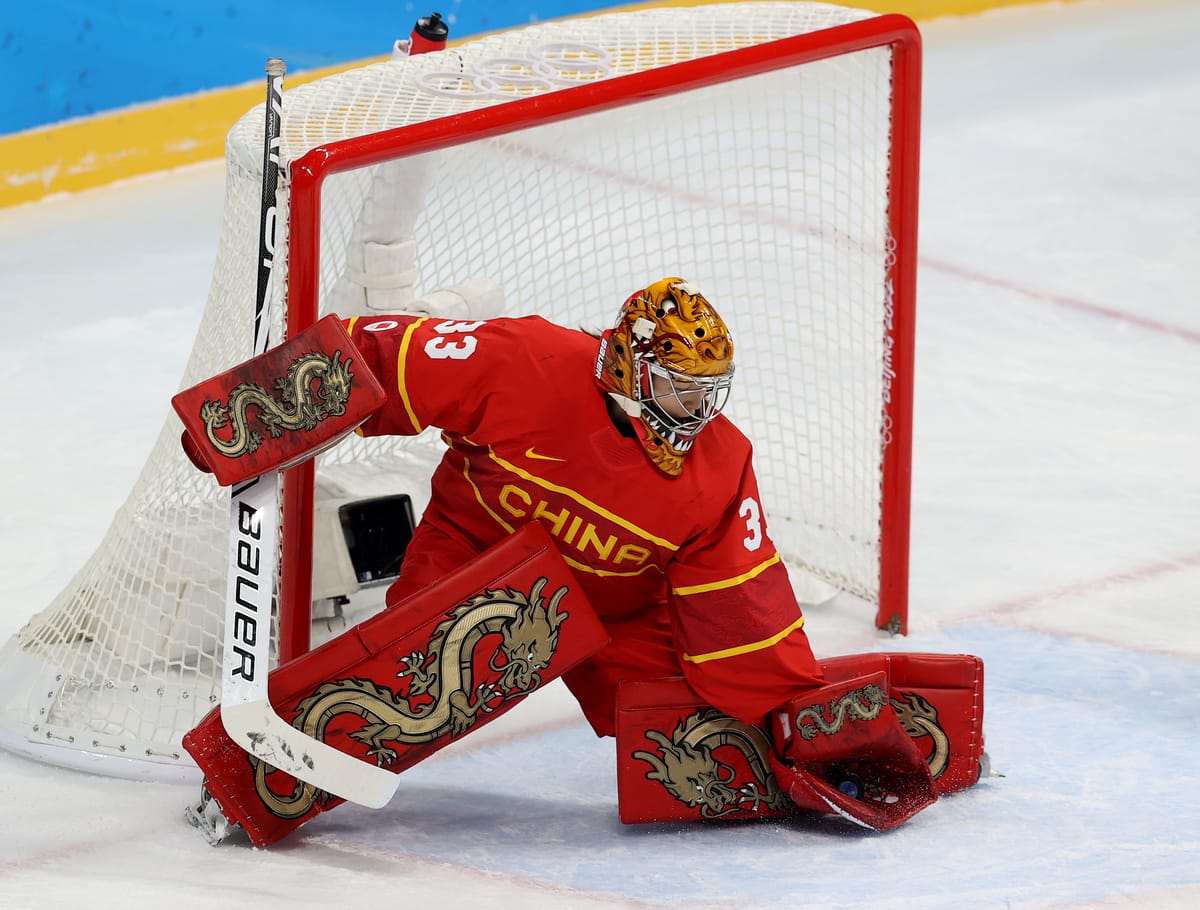
Hockey has taken goaltender Kimberly Newell all over the globe. From Princeton to Russia to Olympic ice in Beijing, her career has been a testament to confidence, adaptability, and hard work. Now, leading up to the 2025 PWHL Draft, she's ready for the sport she loves to bring her home to British Columbia.
What have you been up to since you last played pro?
Since playing in the 2022 Beijing Olympics, I’ve been building Empower Hockey—a female-focused development school in Vancouver that puts girls and women at the center of our training programs. Alongside my former teammate Melanie Jue, we’ve been changing the landscape of female athlete development at the grassroots level from U7 to adult players at all levels of the game.
At Empower, we believe every girl deserves access to the highest quality coaching—coaching that’s intentional, science-backed, and designed specifically for how female athletes grow, learn, and compete. But just as important, we surround them with role models—people who’ve walked the path, who reflect who they are and who they can become.Because when young girls see that they belong in this game, they start to envision a future where they’re not just participating—but leading, thriving, and redefining what’s possible.
At the same time as I was building Empower Hockey, I was also giving myself the space to fully heal. Just before the 2022 Olympics, I broke my ankle. For the next two and a half months, I couldn’t practice with the team, and didn’t play a single game. I was rehabbing every day for 7 weeks straight—doing what I could off the ice to stay sharp mentally and physically, knowing there was a chance, however small, that I’d still get to suit up for the Olympics.
When I finally made it to Beijing, I had just two practices before stepping into Olympic competition—there was no time to ease back into it. I went straight into the crease for Team China on the biggest stage in the world, and I delivered.
Two of the biggest moments for our team was beating Denmark 3-1 for our first win, and defeating Japan 2-1 in a shootout, where I stopped all shootout attempts. I finished the tournament with a .955 save percentage and a 1.32 goals-against average—while still recovering from a broken ankle, with zero games played in the two and a half months prior. Even though I was grateful just to be on Olympic ice, I played some of the best hockey of my career under the most intense pressure imaginable.
It was one of the toughest things I’ve ever done, but it reminded me exactly who I am. I can step into the most high-pressure situations—jet lagged, underprepared, and even injured—and still find my best. I don’t need ideal conditions to perform. I know how to prepare my mind, take care of my body, and rise to the moment. I show up when it counts the most. That resilience, that mindset, and that ability to stay composed, adapt, and deliver under pressure—that’s the strength I carry with me now. And after taking the time to fully heal, rebuild, and grow, I know I’m coming back even stronger—ready to bring that same edge into the PWHL.
I’ve also been taking the time to reconnect with my mom and, through her, with my Chinese heritage. Choosing to represent Team China instead of continuing in Team Canada’s program wasn’t just a hockey decision—it was a deeply personal one. It was about honoring a part of my family’s story that I hadn’t fully explored. That experience helped me understand who I am beyond the game. It gave me a deeper sense of purpose and clarity about the kind of player—and person—I want to be: someone who lives with intention, leads with integrity, and always remembers her roots.
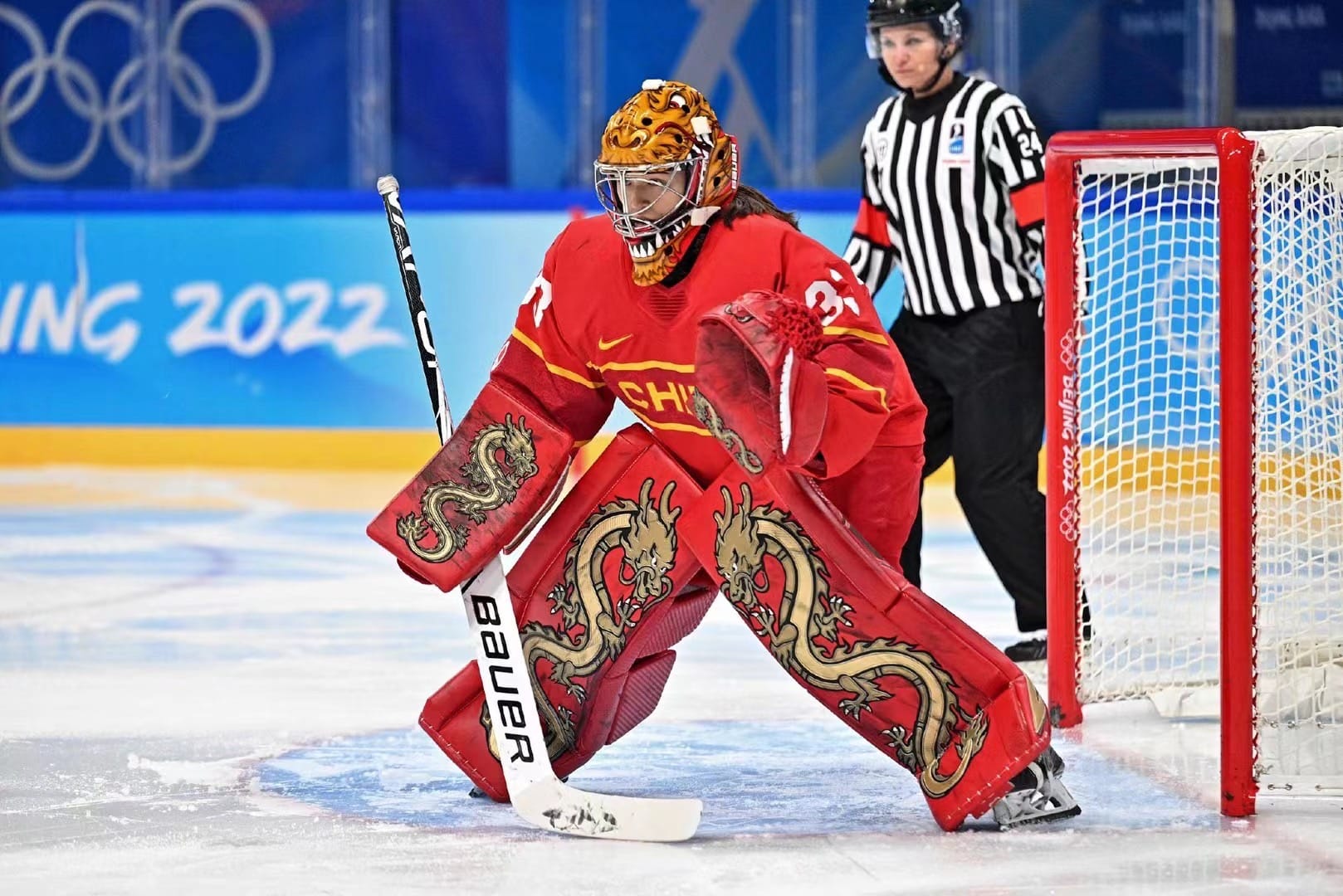
How would you describe yourself as a player?
I’m a focused, intentional goaltender who takes pride in doing the work to be ready and showing up consistently when it matters. I bring a calm, steady presence to the ice and thrive in high-pressure moments. My game is efficient—I read the play well, stay composed, and make the hard saves look easy.
Why did you decide to declare for the PWHL Draft instead of returning to China or trying a European league?
I believe Asian representation in the PWHL is both important and deeply impactful. After representing Team China at the Beijing Olympics, I’ve met so many young girls—and boys—in the Vancouver area who see themselves reflected in me. I became someone they could relate to, someone who showed them they belong in this sport. I learned to speak Mandarin in college, and as a Princeton grad, I’ve found that many Chinese families now look to me not just as a goalie, but as a guide for raising well-rounded, active kids who thrive both in sports and academics.
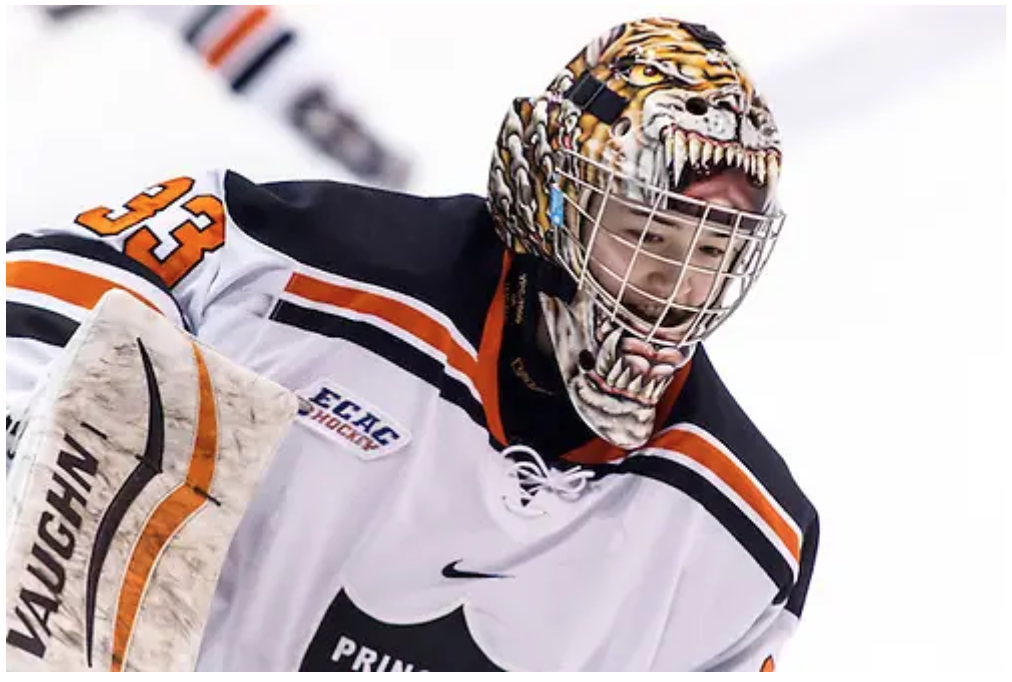
There’s a quiet revolution happening in how Asian parents view sport—they want their kids to be healthy, confident, and competitive, not just in the classroom, but on the ice too. Being a visible Asian player in the PWHL would allow me to help pave the way for others and inspire a cultural shift in how sport is seen and valued within our communities.
After my experience with Team China, I realized how powerful it is to represent something deeply personal. It wasn’t just about hockey—it was about identity, ancestry, and honoring my family’s story. Representing Vancouver in the PWHL would carry that same meaning. This is where I grew up. These are the rinks that shaped me. I want to compete where it matters most—to play for something bigger than myself, and to represent the city and community that helped me become who I am.
I know I’m one of the best goalies in the world, and I’m always looking for the next challenge. I’ve already dominated in China and Europe. I’ve played with and against many of the top players now in the PWHL—Alex Carpenter, Hannah Miller, Sarah Nurse, Emily Clark—and I know I can be a force in this league too. I want to play the best hockey there is, and I want to win.
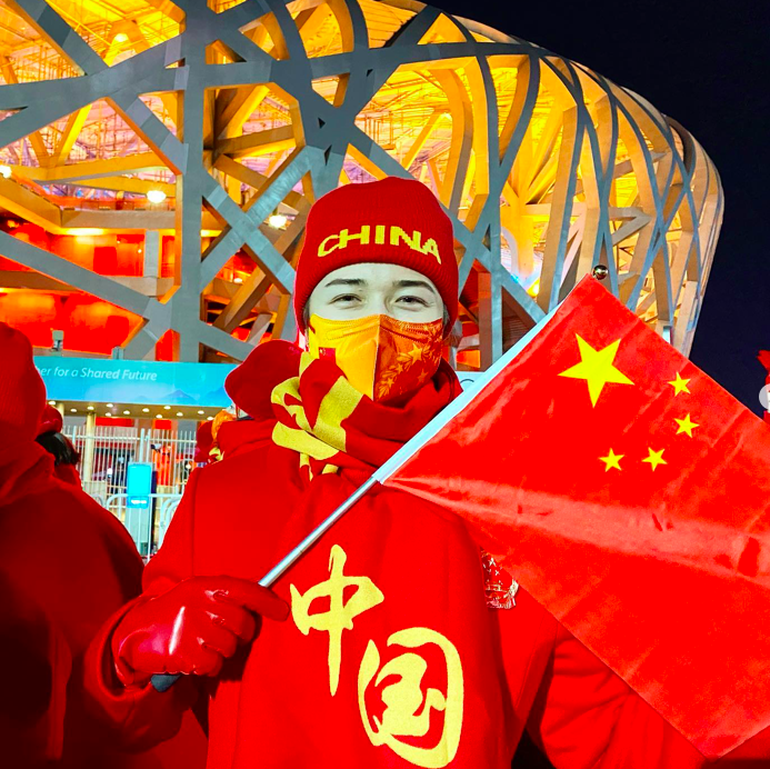
What, in your mind, are your best qualities as a teammate?
I lead with honesty and integrity. I hold myself and others to a high standard, and I’m not afraid to have the hard conversations when it helps the team move forward. I also bring a unique perspective—I’ve been through a lot in my career, and I make it a priority to show up with empathy, clarity, and a team-first mindset, no matter the situation.
What lessons from Team China will you bring into the PWHL?
I’ve learned how to perform at a high level, no matter the circumstances. At the Olympics, I was coming off a broken ankle. I had just two practices in the two and a half months leading up to the Games, but when it was time to play, I stepped in and delivered some of the best hockey of my career. That experience taught me how to stay composed, trust my preparation, and rise to the moment—even when nothing goes to plan.
When I was playing for the Kunlun Red Stars, we traveled often and for long periods of time. For example, during the COVID season in Russia, our team was in lockdown for a month over the holidays. I hadn’t skated at all, then flew 16 hours across the world, landed with a brutal time change, and went straight to the rink to face the best team in the league. I went in cold after the first period and earned a shutout, nearly helping our team come back to win. I’ve learned how to take care of myself through massive time zone changes, long multiple-leg flights, and living out of a suitcase moving from hotel to hotel. It didn’t matter what situational challenges I was facing, I found a way to perform at my best.
This isn’t the first time I’ve returned to the game of hockey after stepping away. I’ve done it before—and I know I can do it again. But this time, I’m coming back with even more knowledge and experience. I’ve spent the past few years growing as both a coach and an athlete, studying movement, learning how to take better care of my body, and developing a deeper understanding of goaltending. I’ve coached athletes of all ages, levels, on both the male and female side of the game, which has evolved the way I see the game. I’m not just trying to get back to where I was—I’m coming back stronger, smarter, and more prepared. This is my personal journey of becoming the best version of myself.


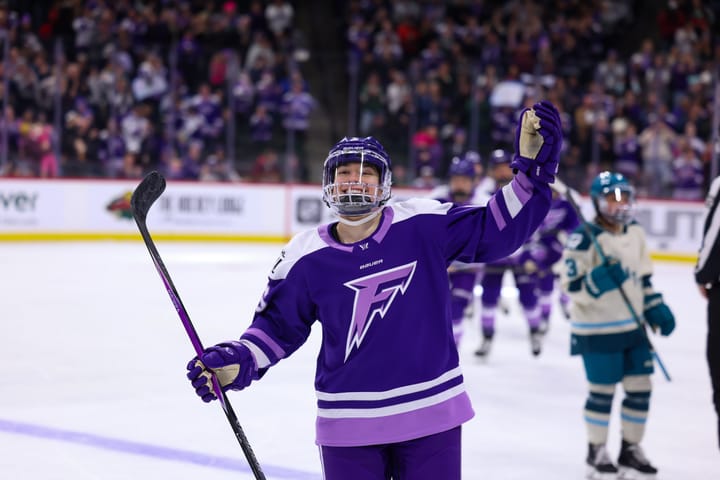
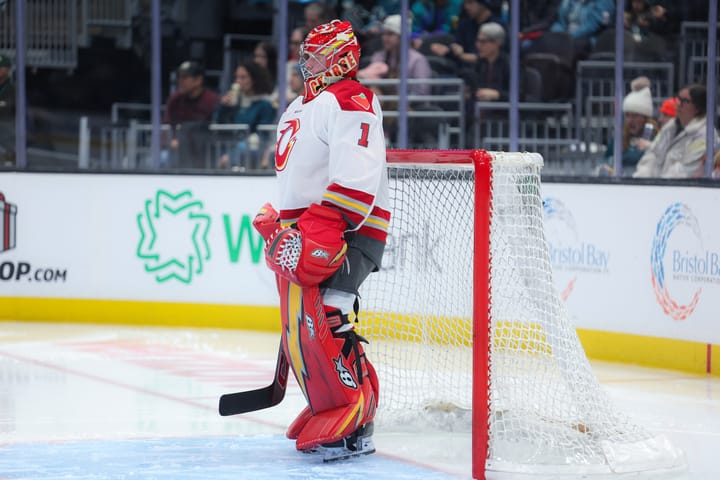
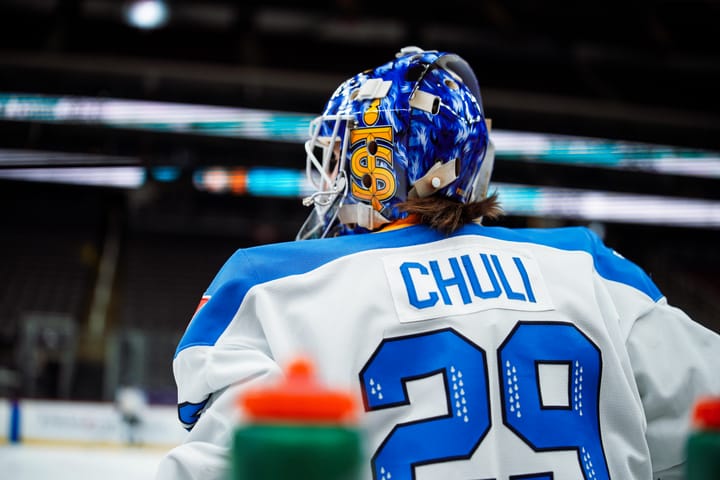
Comments ()